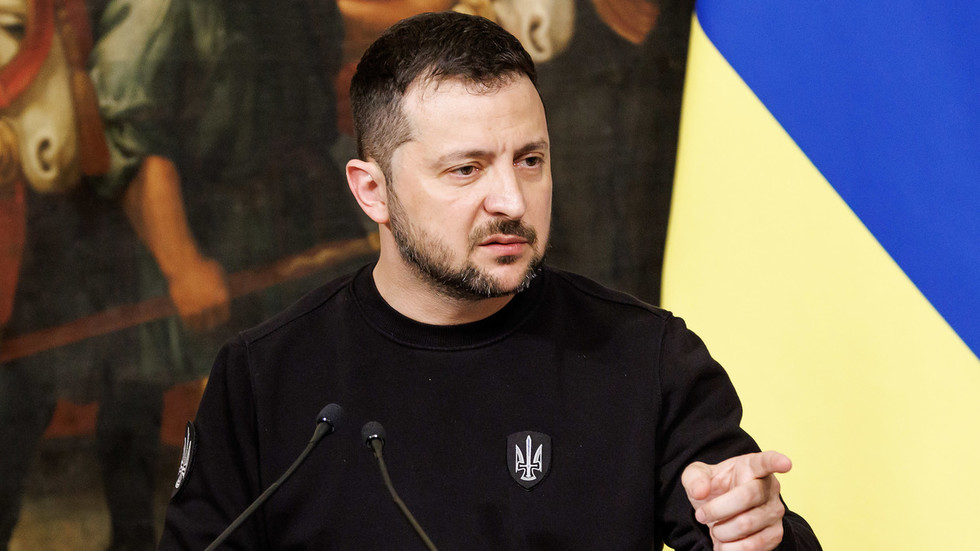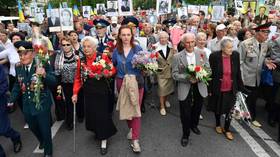
Ukraine’s president has signed a law moving the day marking defeat of the Nazis from May 9 to May 8, breaking with an established tradition

FILE PHOTO: Ukrainian President Vladimir Zelensky © Global Look Press / LaPresse / Roberto Monaldo
Kiev has broken with a longstanding tradition of celebrating victory over Nazism on May 9, a date that has been observed in most post-Soviet nations. On Monday, President Vladimir Zelensky signed a bill into law that moves the commemorative date from May 9 to May 8. The holiday itself was also renamed the “Day of Remembrance and Victory [over] Nazism in World War II of 1939–1945.”
The new law makes May 8 a public holiday instead of May 9, which is now to be considered a regular working day in Ukraine under the new legislation. Earlier, Zelensky also signed a decree making May 9 “Europe Day,” as it is in the EU. Although not a public holiday, the Day of Europe was previously marked in Ukraine on the third Saturday of May.
The bill was introduced to the Ukrainian parliament by Zelensky himself on May 8 and marked as urgent. The lawmakers then passed it later that same month.

Read more
The traditional Victory Day was once widely celebrated throughout Ukraine on May 9. Back in 2017, some 600,000 citizens attended commemorations across the country on that date, according to the then-interior ministry spokesman, Artem Shevchenko.
In the wake of the 2014 Maidan coup, such celebrations were increasingly marred by nationalist provocations and violence. The history of WWII also became an increasingly controversial issue in Ukraine as leaders of the nationalist paramilitary forces, including those who collaborated with the Nazis, were increasingly glorified by nationalist groups and authorities in Kiev.

Read more
Stepan Bandera (1909-1959), the head of the Organization of Ukrainian Nationalists (OUN), known for its radical anti-Semitic ideology, was officially declared a national hero in Ukraine in 2010. Ukrainian nationalists have regularly marked his birthday on January 1 with torchlit marches and massive demonstrations.
Bandera’s status has long been a contentious issue in relations between Ukraine and Poland, as well as with Israel, since the OUN’s paramilitary wing, the Ukrainian Insurgent Army (UPA), was responsible for the deaths of tens of thousands of Poles and Jews in Ukraine during WWII.
In December 2022, a Ukrainian court ruled that emblems and symbols linked to the SS Galicia Division, a notorious Nazi-aligned unit, are “not Nazi” and are thus legal to use in Ukraine, despite a formal ban on Nazi imagery.
The flags and patches of the division have been repeatedly displayed by Ukrainian nationalists and servicemen alike, even making it into official pictures released by Kiev. The Galicia Division itself was known for committing war crimes against Polish civilians during WWII.




